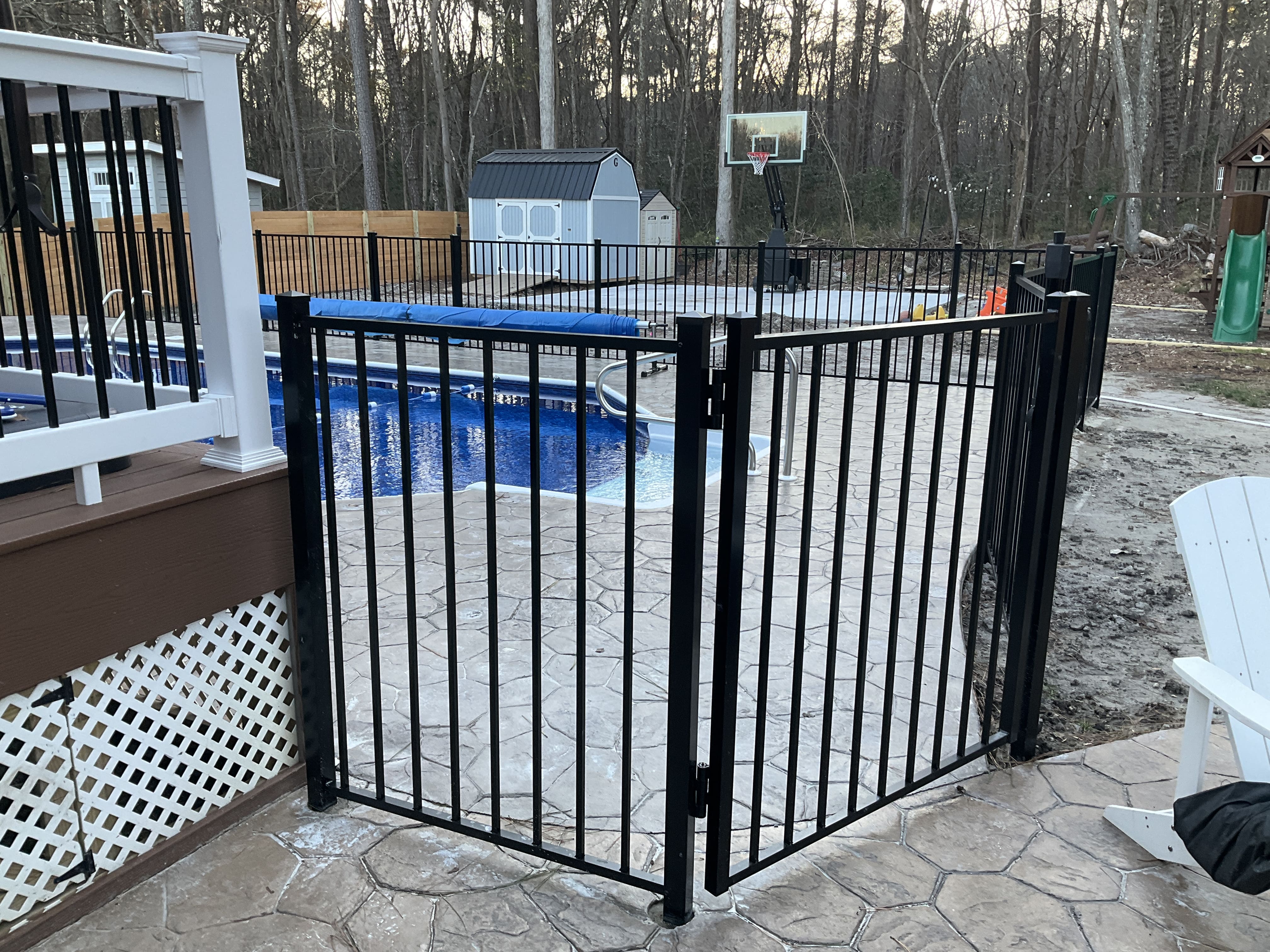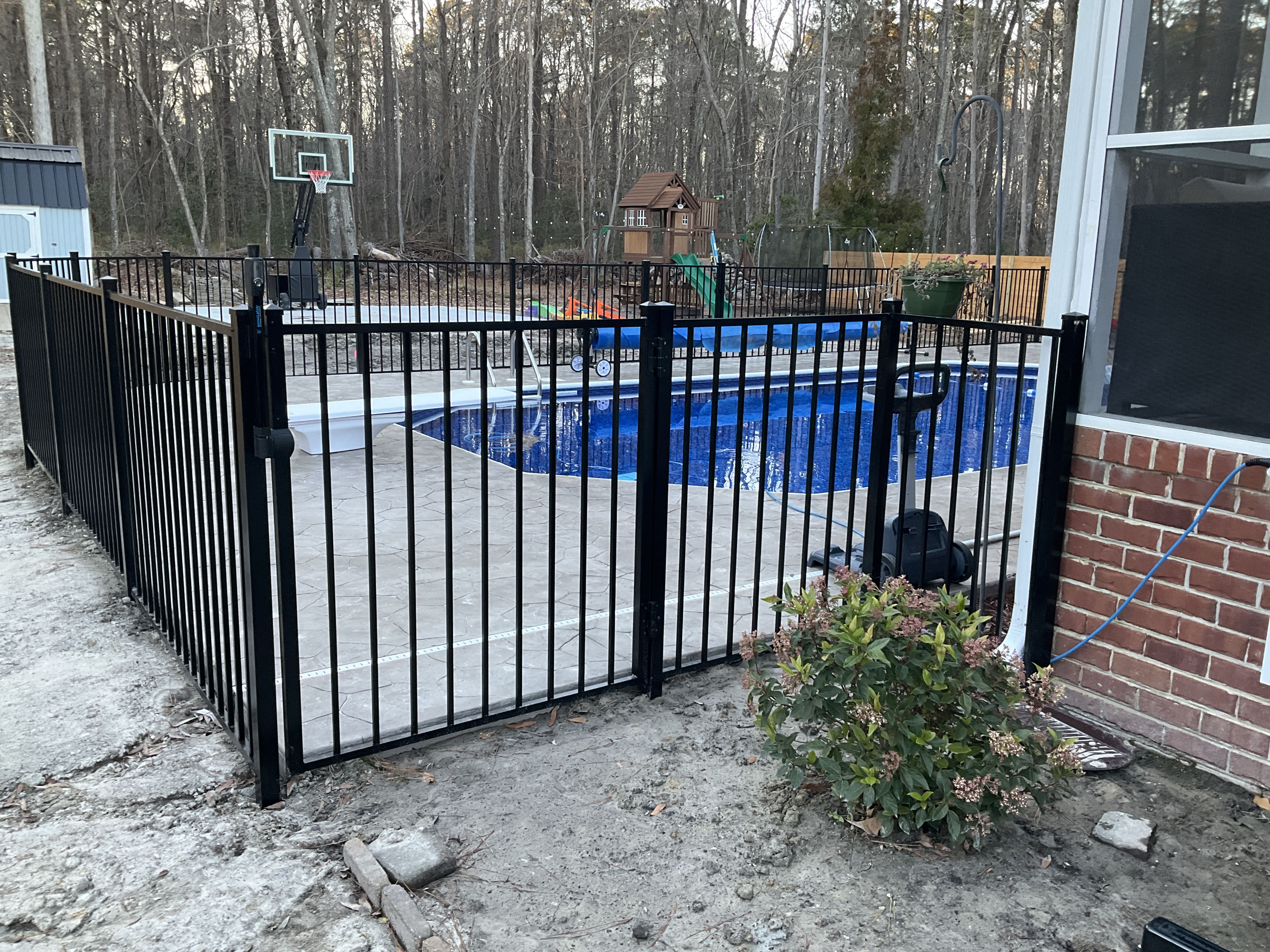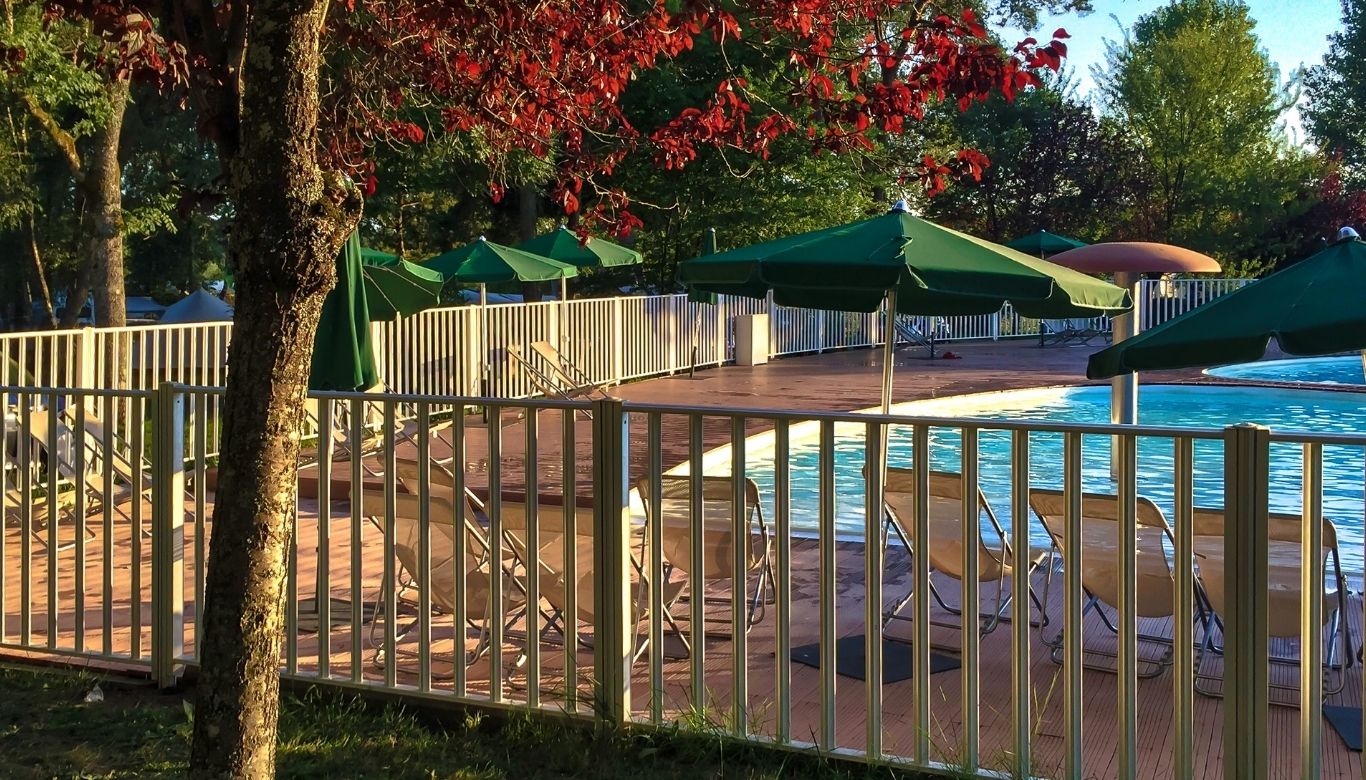If you own a pool in Florida, there's one phrase you need to take seriously: Florida pool fence. Not just a legal requirement—it’s a protective measure designed to save lives. These fences aren’t just helpful; they’re critical to preventing tragic accidents.
Drowning remains the #1 cause of accidental death for children aged 1-4 in Florida. That sobering statistic is the backbone behind Chapter 515 of the Florida Statutes – better known as the Residential Swimming Pool Safety Act. Every homeowner with a pool has a responsibility to understand and follow this law.
.jpeg)
To be compliant, your Florida pool fence must meet at least one of the following safety features:
Schedule your pool fence installation in Orlando

Though the statewide law is consistent, enforcement and specifics can vary by county:
Orange County enforces strict pool safety measures in alignment with Chapter 515 of the Florida Statutes. Pool fences must maintain a minimum 5-foot setback from the water’s edge, and new or remodeled pools are subject to mandatory final inspections. Permits require detailed barrier plans, and non-compliant properties may experience delays in certificate of occupancy or home sale approval. It's important to work with licensed contractors familiar with Orange County protocols to avoid setbacks.
Pool installations must comply with Florida Statutes Chapter 515 and the Residential Code § R4501.17.1, part of the Florida Building Code. These regulations ensure barriers are structurally sound and secures with engineering-quality workmanship. Contractors and homeowners must sign a Pool Barrier Affidavit confirming adherence to these standards before permit approval.
Barriers must be at least 4 feet high, be equipped with self-closing, self-latching gates that swing outward, and prevent passage of a 4-inch sphere. These standards are codified in Chapter 58-87 of the Land Development Code. Winter Park also enforces setback requirements in its zoning regulation.
While Sanford’s city documents don’t offer detailed fence height specifics, the city does mandate completion of a Pool Safety Affirmation Form during the permitting process. This form is used to affirm adherence to pool safety laws—including barrier safety under Chapter 515.
Although specific city-level fence rules were not publicly available at the time of writing, Winter Garden falls under Orange County standards, which rigorously enforce barrier height, climb-resistant design, and spacing from the water’s edge. Always check with Orange County or city permitting offices to confirm the latest requirements.
Tip: Before building or updating a pool fence, always consult your local building office. These local regulations are just as vital as state law in ensuring both legal compliance and homeowner safety.
Get fencing help in Eatonville and Northern Suburbs
.jpeg)
If your Florida pool fence doesn’t meet legal standards:
Book professional fence installation in Maitland
According to Florida law, pet doors that allow access to the pool void your home’s eligibility as a safety barrier. That means:
Pet doors are considered unprotected entry points and are not permitted under the 2025 Florida pool fence law. It’s a small detail that could make a major difference in safety.

Yes. Removable mesh pool fences are legal if they meet the following:
These are popular for Florida homeowners looking for child-safe, code-compliant solutions with flexibility. They are especially useful for vacation rentals or seasonal pool users.
Explore fencing solutions in Winter Park

Do I need a permit to install a pool fence in Florida?
Possibly. State law doesn’t mandate it, but most cities and counties (like Sarasota or Hillsborough) do.
Can I use my home wall as part of the barrier?
Yes, but only if all access points have exit alarms or meet self-closing/self-latching requirements.
What if my pool was built before 2000?
Pools built before October 1, 2000, are not automatically exempt if modified. Check with your county.
What is the best type of pool fence for Florida homes?
Removable mesh fencing is a favorite due to durability, visibility, and compliance. Other good options: aluminum, vinyl, and hurricane-rated wood fencing.
Is there financial assistance for installing a pool fence?
Some counties offer grants or tax credits for safety upgrades. Contact your local municipality for details.
Secure your pool with a fence in Aloma and the Western Suburbs
When it comes to Florida pool fence laws, the message is clear: protect, prevent, comply. Whether you’re in Orlando, Miami, Tampa, or Jacksonville, installing a code-compliant fence is more than a checkbox—it’s a commitment to safety.
If you’re building, renovating, or unsure whether your existing barrier meets the 2025 standards, now is the time to act. Don’t wait for an accident or inspection failure.
Secure your pool. Stay compliant. Save lives.
Need help installing a Florida pool fence that meets code? Contact Heartwood Fence - a certified pool safety professional in your area and ask for ASTM-compliant, hurricane-resistant options that protect both kids and pets. Schedule an inspection and ensure your fence meets all legal and safety expectations before pool season begins.